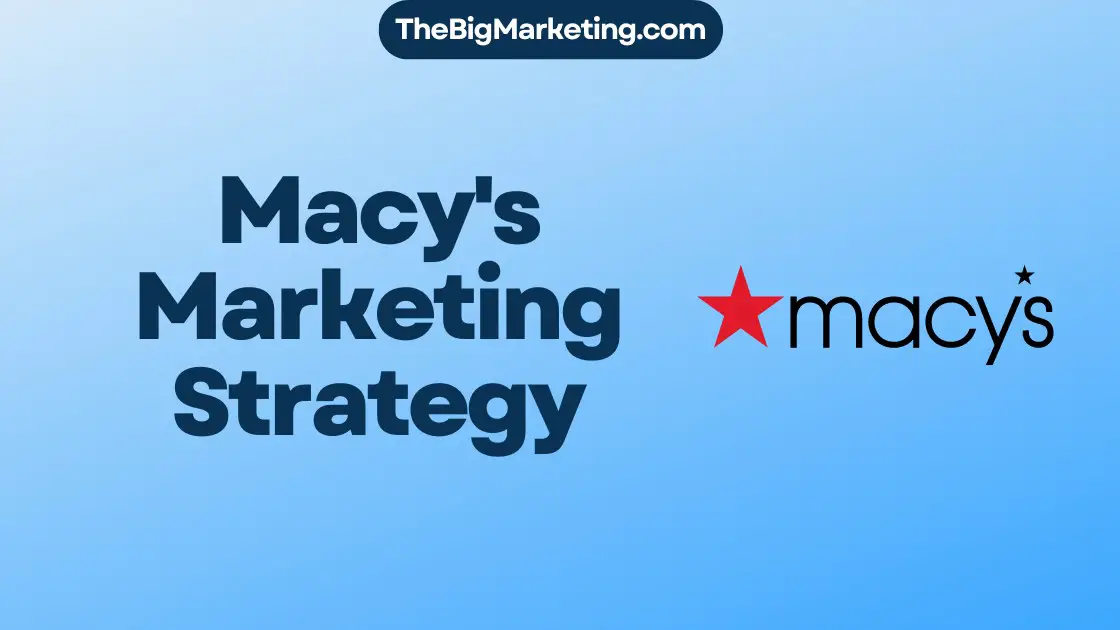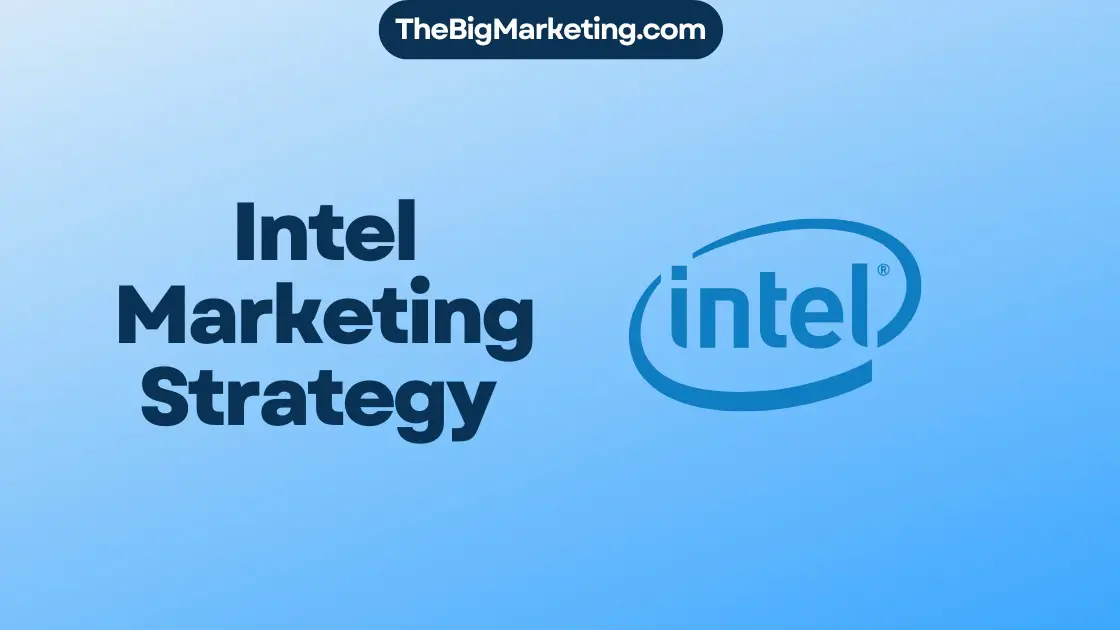When it comes to marketing strategies, businesses have various options to choose from. Two popular strategies that are often mistaken for each other are integrated marketing and omnichannel marketing. While they may have some similarities, they also have key differences that can significantly impact a company’s marketing success. Understanding these differences is crucial for businesses seeking to optimize their digital marketing efforts and enhance customer engagement.
Integrated Marketing focuses on aligning communications across various marketing channels to provide a consistent brand experience. It aims to maintain brand messaging consistency and ensure that customers receive a unified message across different touchpoints. This approach combines traditional marketing methods with online marketing techniques to create a cohesive and effective marketing strategy.
On the other hand, Omnichannel Marketing takes a customer-centric approach by focusing on aligning the entire customer experience across all marketing channels. It aims to create a seamless journey for customers, allowing them to interact with a brand consistently, regardless of the platform or channel they use. This approach prioritizes personalization, optimization of touchpoints, and creating a personalized service for each customer.
Both Integrated Marketing and Omnichannel Marketing have their advantages and can be effective in different scenarios. To determine which strategy is most suitable for your business, it’s important to understand how they differ and what benefits they offer in terms of customer engagement, brand consistency, and overall marketing success.
Key Takeaways:
- Integrated marketing focuses on aligning communications across various marketing channels to provide a consistent brand experience.
- Omnichannel marketing focuses on aligning the entire customer experience across all marketing channels, prioritizing personalization and creating a seamless journey.
- Integrated marketing aims for brand consistency, while omnichannel marketing emphasizes customer-centricity.
- Choosing the right marketing strategy depends on your business goals, target audience, and desired customer experience.
- Combining integrated marketing and omnichannel marketing can result in powerful marketing campaigns that balance personalization and brand consistency.
The Importance of Marketing Strategies
Marketing strategies play a crucial role in the success of any business. These strategies serve as a guide to effectively communicate a brand’s message to potential customers, while also setting it apart from competitors. A well-defined marketing strategy not only enables businesses to engage with their customers effectively but also helps in building brand loyalty.
Implementing a robust marketing strategy allows businesses to project a consistent and attention-grabbing message to their target market. This consistency helps in establishing brand identity and recognition, which further strengthens customer trust. By employing effective marketing strategies, businesses can reduce unnecessary expenses on ineffective advertising and focus on impactful initiatives that yield better results.
Marketing strategies are also instrumental in driving customer engagement. A well-executed strategy fosters meaningful interactions that resonate with the target audience, leading to increased customer interest, trust, and satisfaction. Engaged customers are more likely to become loyal brand advocates, promoting positive word-of-mouth and impacting the bottom line.
Prioritizing Customer Engagement
Customer engagement is an essential aspect of marketing strategies. By focusing on customer needs, preferences, and pain points, businesses can tailor their marketing efforts to deliver value and memorable experiences. This customer-centric approach helps in building long-lasting relationships and driving repeat business.
Today’s market landscape is highly competitive, with businesses vying for consumers’ attention and loyalty. A well-crafted marketing strategy enables businesses to stand out by offering personalized experiences that resonate with their target audience. By understanding customer behavior and leveraging data-driven insights, businesses can create relevant and targeted campaigns that drive customer engagement and satisfaction.
A comprehensive understanding of customer engagement is vital in designing effective marketing strategies. Whether through social media interactions, email marketing, or personalized content, businesses must create touchpoints that capture customer interest and drive meaningful interactions at every stage of the customer journey.
Building Brand Loyalty
Marketing strategies are instrumental in fostering brand loyalty. By consistently delivering value and exceeding customer expectations, businesses can establish a strong connection with their audience, generating trust and loyalty. Loyal customers are not only more likely to continue purchasing from a brand but also become advocates, recommending the brand to others.
A well-implemented marketing strategy builds trust by maintaining an authentic and reliable brand image. This consistency across multiple touchpoints helps customers associate valuable experiences with the brand, reinforcing loyalty and encouraging repeat business.
Marketing strategies also provide an opportunity for businesses to showcase their unique selling proposition (USP) and differentiate themselves from competitors. By effectively communicating the brand’s value proposition and demonstrating its distinct attributes, businesses can attract and retain customers who align with their offering.
Key Takeaways
- Marketing strategies are crucial for business success as they enable effective customer engagement and help build brand loyalty.
- Implementing a well-defined marketing strategy allows businesses to project a consistent and attention-grabbing message to target markets, reducing expenses on ineffective advertising.
- Customer engagement is a key focus of marketing strategies, as it fosters meaningful interactions that drive customer interest and satisfaction.
- Marketing strategies play a vital role in building brand loyalty by consistently delivering value, exceeding customer expectations, and differentiating from competitors.
| Benefits of Marketing Strategies |
|---|
| Effective customer engagement |
| Building brand loyalty |
| Reduced expenses on ineffective advertising |
| Clear communication of the brand’s value proposition |
Integrated Marketing
Integrated marketing is a strategic approach that consolidates messaging and branding across multiple marketing channels. By leveraging social media, websites, advertising, and public relations, businesses create a consistent customer experience that fosters brand loyalty and engagement. This approach not only ensures brand consistency but also helps lower marketing expenses by reusing content across different platforms.
With integrated marketing, businesses can maximize their brand visibility by sending consistent cues to customers across channels. By maintaining a unified message and visual identity, businesses can enhance their brand’s recognition and reputation, leading to greater visibility in the market.
Marketers who implement integrated marketing can also analyze the effectiveness of previous campaigns. By reviewing data from various channels, they can identify successful strategies and optimize future marketing projects accordingly. This data-driven approach enables businesses to allocate their resources effectively and maximize their return on investment.
Benefits of Integrated Marketing
Integrated marketing offers several benefits that can significantly impact a business’s marketing efforts. By leveraging this strategy, companies can lower their marketing expenses, increase brand visibility, and effectively utilize the Rule of Seven to influence customer purchasing decisions.
1. Lower Marketing Expenses: Integrated marketing allows businesses to maximize their resources and minimize costs by repurposing content across multiple platforms. With consistent messaging and creative assets already in place, companies can achieve greater efficiency and reduce the need for creating new content for each marketing channel.
2. Greater Visibility: A key advantage of integrated marketing is its ability to send consistent messages to customers across various touchpoints. By maintaining brand consistency and reinforcing core messaging, businesses can enhance their visibility and reinforce brand recognition. This consistent exposure increases the chances of potential customers noticing and remembering the brand, ultimately influencing their purchasing decisions.
3. Rule of Seven: The Rule of Seven states that customers need to be exposed to a brand or advertisement at least seven times before they are likely to make a purchase. Integrated marketing provides businesses with the opportunity to reach customers across multiple channels, increasing the likelihood of meeting the Rule of Seven threshold. By implementing integrated campaigns, companies can strategically deliver their messages and build a relationship with potential customers that surpasses the required exposure limit.
Overall, integrated marketing offers businesses a cost-effective approach to marketing while maximizing brand visibility and leveraging the Rule of Seven. By aligning their messaging and utilizing multiple touchpoints, companies can effectively reach their target audience, build brand recognition, and influence customer behavior.
Omnichannel Marketing
In today’s digital age, providing a seamless customer experience across various marketing channels is crucial for businesses to stay competitive. This is where omnichannel marketing comes into play. By leveraging the power of multiple platforms and touchpoints, businesses can deliver personalized service, enhance customer satisfaction, and ultimately increase revenue.
Omnichannel marketing revolves around creating a consistent experience for customers as they interact with a brand across different channels. Whether it’s an online store, social media platforms, or physical retail locations, the goal is to provide a seamless journey for customers, allowing them to engage with the brand effortlessly.
One of the key advantages of omnichannel marketing is its ability to prioritize personalization. By understanding and catering to individual customer preferences, businesses can create tailored experiences that resonate with their target audience. This personalized service not only enhances customer satisfaction but also increases the likelihood of customer loyalty and repeat purchases.
Several studies have shown that implementing an omnichannel marketing strategy can significantly improve order rates, conversion rates, and customer spending. Customers who engage with a brand through multiple channels tend to spend more and have a higher lifetime value. This translates into increased revenue for businesses, making omnichannel marketing a valuable strategy to pursue.
By integrating various channels and touchpoints, businesses can connect with customers at different stages of their buying journey, ensuring consistent messaging and experiences. This seamless approach strengthens the customer-brand relationship, ultimately resulting in increased customer satisfaction and loyalty.
Implementing an effective omnichannel marketing strategy requires careful planning, coordination, and utilization of technology and data analytics. Businesses must ensure that all channels work together harmoniously to provide a cohesive experience. Additionally, tracking and analyzing customer data across channels can provide valuable insights, helping businesses optimize their efforts and continuously improve the customer experience.
Benefits of Omnichannel Marketing
Omnichannel marketing offers several benefits that contribute to its effectiveness:
- Enhanced customer experience: By providing a seamless and personalized customer journey, businesses can enhance customer satisfaction and loyalty.
- Increased revenue: The personalized approach and optimized touchpoints of omnichannel marketing can lead to higher order rates, conversion rates, and customer spending, resulting in increased revenue.
- Improved brand perception: Consistent experiences across channels can strengthen a brand’s reputation and perception among customers, enhancing the overall brand image.
- Greater customer engagement: The ability to connect with customers through various channels allows businesses to engage with their audience at different touchpoints, fostering deeper relationships and higher levels of engagement.
Implementing an effective omnichannel marketing strategy requires a comprehensive understanding of customer behavior, strong coordination across channels, and a commitment to delivering personalized and seamless experiences. By prioritizing the customer journey and leveraging the power of multiple channels, businesses can unlock significant growth opportunities and achieve sustainable success.

| Key Benefits of Omnichannel Marketing |
|---|
| Enhanced customer experience |
| Increased revenue |
| Improved brand perception |
| Greater customer engagement |
Benefits of Omnichannel Marketing
Omnichannel marketing offers significant benefits for businesses in terms of enhancing customer experiences, driving increased revenue, and catering to the rise in multi-platform purchasing. By focusing on customer preferences and needs, businesses can create positive experiences that ultimately lead to improved sales, brand awareness, and customer loyalty.
Research has shown that omnichannel consumers are worth more throughout their lifetime, highlighting the long-term value of implementing an omnichannel marketing strategy. By incorporating multiple marketing platforms and touchpoints, businesses can achieve higher order rates, conversion rates, and customer spending.
The increase in multi-platform purchasing behavior among consumers further emphasizes the importance of omnichannel marketing. With customers now using various channels and devices to make purchases, businesses need to ensure a seamless experience across all touchpoints. Omnichannel marketing allows businesses to cater to customer preferences by providing a consistent and integrated experience, regardless of the platform or device used.
| Benefits of Omnichannel Marketing |
|---|
| Improved customer experiences |
| Increased sales |
| Enhanced brand awareness |
| Improved customer loyalty |
| Higher order rates |
| Higher conversion rates |
| Increased customer spending |
Choosing the Right Marketing Strategy
When it comes to deciding between integrated marketing and omnichannel marketing, it’s essential to consider the goals and focus of your business. Integrated marketing is well-suited for those who prioritize maintaining brand consistency, generating leads, and attracting new customers. With its streamlined approach, integrated marketing ensures that your brand message remains consistent across various channels, enhancing brand recognition and trust.
On the other hand, businesses that are customer-centric and value personalization and fostering repeat customers may find omnichannel marketing more suitable. This strategy focuses on providing a seamless customer experience and delivering personalized service through multiple touchpoints. By aligning all marketing channels, omnichannel marketing aims to create a cohesive journey for customers, increasing satisfaction and fostering loyalty.
Ultimately, the choice between integrated marketing and omnichannel marketing depends on your business’s unique characteristics and objectives. Consider the advantages and features of each strategy to make an informed decision that aligns with your brand-centric or customer-centric approach.
Combining Integrated Marketing and Omnichannel Marketing
Rather than viewing integrated marketing and omnichannel marketing as separate strategies, combining them can lead to more powerful marketing campaigns. A combined approach allows for the personalization and targeting of omnichannel marketing while maintaining brand consistency and trustworthiness through integrated marketing. Collaboration among team members is essential for successful implementation, ensuring consistent messaging and aligning initiatives. It’s important to avoid common mistakes such as not connecting the dots between channels, not having enough content, and isolating offline and online channels.
The marriage of integrated marketing and omnichannel marketing leverages the strengths of both approaches, resulting in a more holistic and effective marketing strategy. By integrating various marketing channels and touchpoints, businesses can create a seamless customer experience while ensuring consistent brand messaging.
A key advantage of this combined approach is the ability to personalize marketing efforts and target specific customer segments through omnichannel marketing. By harnessing customer data and utilizing platforms like email, social media, and mobile apps, businesses can deliver tailored messages and offers to engage customers on a deeper level.
Furthermore, collaboration among team members is crucial to successfully implement a combined strategy. This collaboration ensures that messaging remains aligned across different channels, avoiding inconsistencies that may confuse or alienate customers.
| Benefit | Integrated Marketing | Omnichannel Marketing | Combined Approach |
|---|---|---|---|
| Brand Consistency | ✓ | – | ✓ |
| Personalization | – | ✓ | ✓ |
| Targeted Messaging | – | ✓ | ✓ |
| Customer Engagement | ✓ | ✓ | ✓ |
The combined approach also helps businesses avoid common pitfalls. It ensures that all channels are connected and work together seamlessly, allowing customers to have a consistent experience regardless of the channels they engage with. This helps prevent isolated efforts that may dilute the overall impact of marketing initiatives.
By adopting a combined approach, businesses can harness the power of integrated marketing and omnichannel marketing to create more impactful and cohesive marketing campaigns. Through collaboration, consistent messaging, and a focus on personalization, the combined approach enables businesses to engage customers effectively and maximize marketing results.
Creating an Integrated Marketing Plan Across Channels
To create an integrated marketing plan across channels, businesses need to establish clear goals that align with their overall marketing objectives. This ensures that all marketing efforts are focused and coordinated, maximising the impact of each channel. Collaboration among team members is crucial in this process, as it allows for a unified approach and consistent messaging.
When developing an integrated marketing plan, it’s important to strike a balance between consistency and uniqueness. Consistency in brand messaging helps to build trust and recognition among customers, while uniqueness and adaptability ensure that the message is tailored to each specific channel and target audience.
Continual testing and refining of marketing assets and messaging on various platforms is essential to improve results and effectiveness. By monitoring and analyzing the performance of different channels, businesses can identify areas for improvement and make data-driven decisions. This iterative process allows for optimization and the ability to stay ahead of the competition.
An example of an integrated marketing plan across channels:
| Marketing Channel | Goal | Tactics |
|---|---|---|
| Website | Increase online conversions |
|
| Email Marketing | Drive customer engagement |
|
| Social Media | Build brand awareness |
|
| Offline Advertising | Reach a wider audience |
|
By integrating these channels and aligning their goals, businesses can create a cohesive and impactful marketing strategy that drives results. A well-executed integrated marketing plan ensures that all channels are working together towards a common goal, maximizing the return on investment and delivering a seamless customer experience.
Conclusion
Integrated marketing and omnichannel marketing are two distinct strategies that offer unique advantages in the modern marketing landscape. Integrated marketing focuses on maintaining brand consistency and generating leads, while omnichannel marketing prioritizes creating a seamless customer experience and fostering loyalty.
However, businesses can unlock even more powerful marketing campaigns by adopting a combined approach. This entails balancing personalization and brand consistency to create a customer-centric and brand-centric marketing strategy. By seamlessly integrating the best elements of both strategies, businesses can optimize customer engagement, drive revenue growth, and enhance their overall marketing impact.
When choosing the right marketing strategy, businesses should consider their specific goals, brand focus, and desired customer experience. Factors such as the need for consistent brand messaging, lead generation, customer loyalty, and revenue growth should also be taken into account. Ultimately, the decision should be based on the unique needs and objectives of each business.
In today’s highly competitive market, a combined approach of integrated marketing and omnichannel marketing can provide a winning formula for businesses seeking to thrive. By embracing a strategic and customer-centric approach, businesses can effectively navigate the evolving marketing landscape and achieve long-term success.
FAQ
What is the difference between integrated marketing and omnichannel marketing?
Integrated marketing focuses on aligning communications across different touchpoints, while omnichannel marketing focuses on aligning the entire customer experience.
What are the benefits of integrated marketing?
Integrated marketing offers benefits such as lower marketing expenses through content reusability and enhanced brand visibility through consistent messaging to customers.
What are the benefits of omnichannel marketing?
Omnichannel marketing improves customer experiences, increases sales, boosts brand awareness, and fosters customer loyalty through personalization and catering to customer preferences.
How do I choose the right marketing strategy for my business?
The choice between integrated marketing and omnichannel marketing depends on your business goals and whether you prioritize brand consistency or customer experience.
Can I combine integrated marketing and omnichannel marketing?
Yes, combining integrated marketing and omnichannel marketing can result in more powerful campaigns by balancing personalization and brand consistency.
How do I create an integrated marketing plan across channels?
To create an integrated marketing plan, establish clear goals, ensure collaboration among team members for consistent messaging, and continually test and refine marketing assets and messaging on different platforms.





